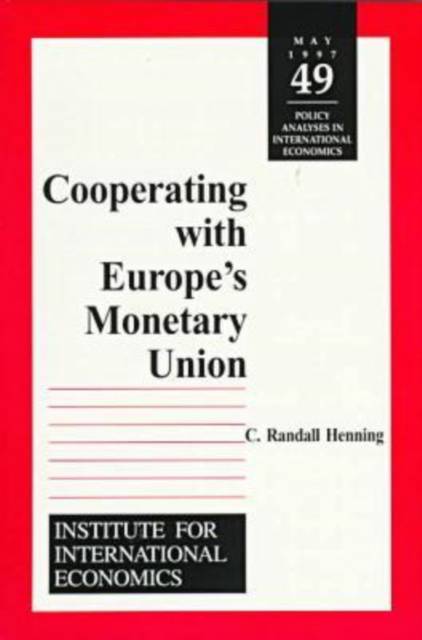
- Afhalen na 1 uur in een winkel met voorraad
- Gratis thuislevering in België vanaf € 30
- Ruim aanbod met 7 miljoen producten
- Afhalen na 1 uur in een winkel met voorraad
- Gratis thuislevering in België vanaf € 30
- Ruim aanbod met 7 miljoen producten
Zoeken
Omschrijving
Europe's monetary union will represent the most profound transformation of the international monetary system since the transition from fixed to flexible exchange rates in the early 1970s. It will compete with the erosion of American dominance and the dramatic increase in capital mobility for the distinction of being the most far-reaching change in the global monetary system since the Bretton Woods conference of 1944. Economic and Monetary Union (EMU) will create in Europe a new monetary actor with an economic size roughly comparable to the United States, ushering in a new era in international monetary relations. Nonetheless, while broad interests coincide, the creation of the monetary union will pose challenges to American, Japanese, and other non-European policymakers. Europe's monetary union could prove to be a difficult partner in international monetary cooperation. Henning recommends that European institutions and policy processes be strengthened, representation of the monetary union in the G-7 be consolidated, and that European, American, and Japanese authorities cooperate to reduce instability during the transition to monetary union.
Specificaties
Betrokkenen
- Auteur(s):
- Uitgeverij:
Inhoud
- Aantal bladzijden:
- 112
- Taal:
- Engels
- Reeks:
- Reeksnummer:
- nr. 49
Eigenschappen
- Productcode (EAN):
- 9780881322453
- Verschijningsdatum:
- 1/05/1997
- Uitvoering:
- Paperback
- Formaat:
- Trade paperback (VS)
- Afmetingen:
- 153 mm x 229 mm
- Gewicht:
- 136 g

Alleen bij Standaard Boekhandel
+ 40 punten op je klantenkaart van Standaard Boekhandel
Beoordelingen
We publiceren alleen reviews die voldoen aan de voorwaarden voor reviews. Bekijk onze voorwaarden voor reviews.











